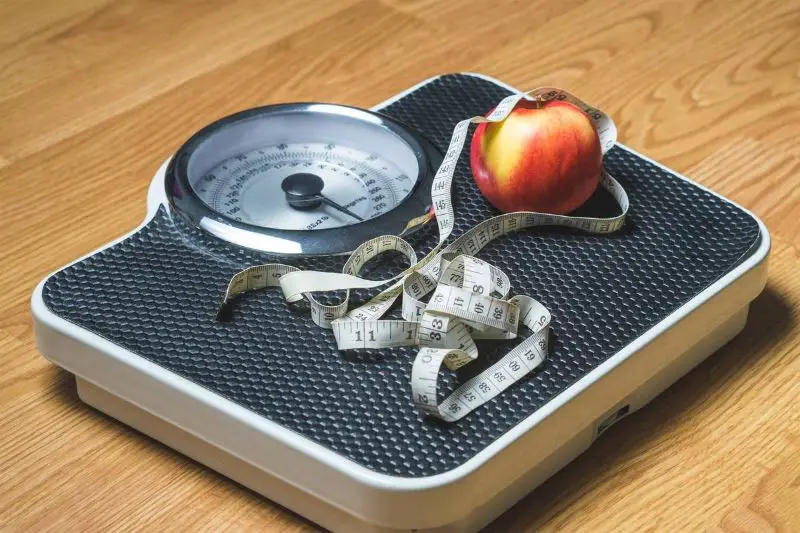
Gastric sleeve surgery is a type of weight loss surgery that involves removing a portion of the stomach. The goal of this surgery is to restrict the amount of food that can be consumed and to promote weight loss. While gastric sleeve surgery can be very effective in helping patients lose weight, many patients experience weight gain or a weight loss plateau after the initial rapid weight- loss after gastric bypass. This article explores how to restart weight loss after gastric sleeve surgery and prevent weight regain.
Table of Contents (click to expand)
Understanding Weight Loss Surgery
Several types of weight loss surgery are available, including gastric bypass surgery, gastric banding, and sleeve gastrectomy (gastric sleeve surgery). Each procedure has advantages and disadvantages, and discussing your options with a bariatric surgeon is essential to determine which method is best for you. During gastric sleeve surgery, a portion of the stomach is removed, leaving a tube-like structure. This smaller stomach pouch restricts the amount of food consumed, leading to weight loss. Most gastric bypass patients lose significant weight in the first year after surgery, but weight loss may slow down after that point.
Related: How to Take Measurements for Weight Loss
Why Weight Loss Slows Down After Surgery
After gastric sleeve surgery, many patients experience a rapid weight loss phase followed by a plateau or even weight gain. There are several reasons why weight loss may slow down or stop altogether:
- Changes in metabolism: After weight loss surgery, your metabolism may slow down to conserve energy, making it harder to lose weight.
- Lifestyle changes: Some patients may return to unhealthy eating habits after surgery, which can lead to weight gain.
- Plateau effect: Many patients experience a weight loss plateau at some point during their weight loss journey, even after surgery.
Tips for Restarting Weight Loss After Gastric Sleeve
If you’ve experienced a weight loss stall or regained weight after gastric sleeve surgery, don’t worry – there are steps to restart weight loss and get back on track. Here are some tips to help you get started:
Tip #1: Reset Your Diet
One way to jumpstart weight loss after gastric sleeve surgery is by doing a “pouch reset.” This involves following a strict post-surgery diet plan for a brief period to gain weight and help your stomach heal and function properly. The pouch reset mimics the pre-surgery diet and gradually reintroduces foods back into the diet. During the pouch reset, patients typically start with clear liquids for 1-2 days, followed by total beverages (such as some protein shakes and drinks) for 3-4 days, then soft foods (such as mashed fruit) for 3-4 days, and finally regular foods (but in smaller portions) for 3-4 days. After completing the pouch reset, it’s essential to continue making dietary changes and maintaining a healthy lifestyle to prevent weight regain.
Tip #2: Focus on High Protein Foods
A high-protein diet can help promote weight loss after gastric sleeve surgery. Protein helps you feel full for fewer calories for more extended periods, which can reduce hunger and prevent overeating. Additionally, protein can help preserve lean muscle mass while promoting fat loss. High-protein foods include lean meats, fish, eggs, tofu, and low-fat dairy products. It’s important to talk to your doctor or dietitian to determine how much protein you should consume daily based on your needs.
Related: How to Manifest Weight Loss: Using the Law of Attraction to Achieve Your Ideal Body
Tip #3: Incorporate Exercise Into Your Routine
Physical activity is integral to any weight loss journey, including after weight loss surgery. Exercise can help boost metabolism, burn calories, and improve overall health. Additionally, exercise can help prevent muscle loss and promote fat loss. Some examples of physical activity include walking, swimming, cycling, strength training, and yoga. It’s important to talk to your doctor before starting any exercise program to ensure that you’re doing safe and appropriate activities for your fitness level.
Tip #4: Drink Plenty of Water
Drinking enough water is essential for weight loss after gastric sleeve surgery. Water can help flush out toxins, reduce water retention, and support healthy digestion. Additionally, drinking water before meals can help reduce appetite and prevent overeating. It’s recommended that bariatric patients drink at least 64 ounces of water each day. However, it’s important to talk to your doctor or dietitian to determine how much water you should consume based on your needs.
Tip #5: Keep Track of Your Food Intake
Keeping track of what you eat can help you stay accountable and make healthier choices. Many bariatric patients find success with food logging apps or using a food journal. This can help you identify patterns in your eating habits and make changes where necessary.
Tip #6: Join a Support Group
Weight loss surgery can be a challenging journey, and it’s important to have a support system in place. Joining a support group can be a great way to connect with other bariatric patients who are going through similar experiences. Support groups can provide encouragement, motivation, and accountability.
Tip #7: Avoid Unhealthy Habits
It’s important to avoid unhealthy habits after weight loss surgery, such as binge eating, drinking alcohol, and consuming sugary or high-calorie foods. These habits can lead to weight gain and prevent you from reaching your weight loss goals. Instead, focus your calorie intake on consuming healthy foods and drinks that are low in calories and high in nutrients. Some examples include fruits, vegetables, lean protein, and water.
Related: How Many Weeks is Considered a Weight Loss Plateau?
Tip #8: Consider Revision Surgery
If you’ve tried all of the above tips and still haven’t seen results, you may want to consider revision surgery. This involves undergoing another bariatric procedure to help jumpstart weight loss. However, revision surgery is not for everyone and should only be considered after consulting a bariatric surgeon.
Possible Complications After Weight Loss Surgery
While weight loss surgery can be very effective in helping patients lose weight, there are possible complications and risks associated with the surgery. Some possible complications include:
- Infections
- Bleeding
- Blood clots
- Nutritional deficiencies
- Stomach ulcers
- Gallstones
It’s important to follow your doctor’s instructions and attend all post-operative appointments to prevent complications and ensure a successful outcome.
The Benefits of Weight Loss
Losing weight can have many benefits for your overall health and well-being. Some benefits of weight loss include:
- Reduced risk of chronic diseases, such as diabetes, heart disease, and cancer
- Improved mobility and joint health
- Better sleep quality
- Increased energy and stamina
- Improved self-esteem and body image
Frequently Asked Questions
What is the 48-hour pouch reset?
The 48-hour bariatric pouch reset is a diet plan designed to help people who have undergone bariatric surgery, such as gastric bypass or gastric sleeve surgery, to “reset” their stomachs if they’re experiencing weight gain or other issues post-surgery. This method claims to help return the stomach pouch to its post-surgery size and restore dietary habits.
The reset usually involves two days of liquid diet, similar to the diet followed immediately post-surgery. The first day often involves drinking only clear liquids, while the second day might include thicker juices or purees. The idea is that this diet will help the stomach pouch shrink back to its post-operative size and help individuals reset their eating habits.
However, it’s important to note that the efficacy and safety of the pouch reset diet are not universally accepted. It’s highly recommended to discuss any dietary changes, including a bariatric pouch- reset, with a healthcare provider or a dietitian who specializes in bariatric surgery before starting.
Related: What is the Ice Hack for Weight Loss
Can your stomach go back to normal after gastric sleeve?
Gastric sleeve surgery, also known as sleeve gastrectomy, involves removing a large portion of the stomach to create a smaller, sleeve-like gastric pouch. This smaller stomach limits the amount of food one can eat simultaneously, contributing to weight loss.
It’s important to note that this procedure is permanent – the removed part of the stomach does not grow back. However, over time, the new, smaller stomach can stretch. This stretching may allow a person to consume more or less food before feeling full, potentially leading to weight gain.
Stomach stretching does not mean the stomach returns to its “normal” pre-surgery size. Still, it may not provide the same level of restriction on caloric intake as it did immediately after surgery. To maintain weight loss after a gastric sleeve procedure, patients must commit to a lifetime of healthy eating habits and regular physical activity.
How fast can I lose 100 pounds after gastric sleeve?
The rate of weight loss after gastric sleeve surgery varies from person to person. It is influenced by starting weight, diet, physical activity level, and adherence to post-operative guidelines. On average, patients may lose around 60-70% of their excess weight in the first year following surgery.
A person with 100 pounds of excess weight might lose this amount within 12-18 months post-surgery. However, this is just an estimate, and individual results can significantly vary. It’s also important to remember that rapid weight loss is not always the healthiest or most sustainable way to lose weight.
Regular follow-ups with the healthcare team, including the surgeon, dietitian, and potentially a psychologist, are crucial to success after surgery.
Can you have gastric sleeve surgery twice?
A second gastric sleeve surgery, or any revision bariatric surgery, is possible but is usually considered only in certain circumstances. This might be due to inadequate weight loss or weight where patients regain weight after the initial procedure or complications from the first surgery that need to be resolved.
However, revision surgery is generally more complex and carries a higher risk of complications than the initial surgery. Therefore, it’s usually considered only if the potential benefits outweigh the risks.
In cases of weight regain or inadequate weight loss, healthcare providers typically recommend exploring non-surgical options first, such as changes in diet, increased physical activity, or mental health support.
If you’re considering a second bariatric surgery, you must have an in-depth discussion with your healthcare provider to understand the potential risks and benefits. The decision to undergo a second surgery should be made individually, considering various factors, including the patient’s health status, the reason for the revision, and the likely outcomes.
Related: How to Qualify for Weight Loss Surgery: A Comprehensive Guide
Conclusion
Restarting weight loss after gastric sleeve surgery can be challenging, but it’s possible to regain weight with the right strategies and mindset. By making dietary and lifestyle changes, incorporating physical activity, and seeking support from others, you can jumpstart weight loss and prevent weight regain. Remember to always consult with your doctor or dietitian before changing your diet.


































